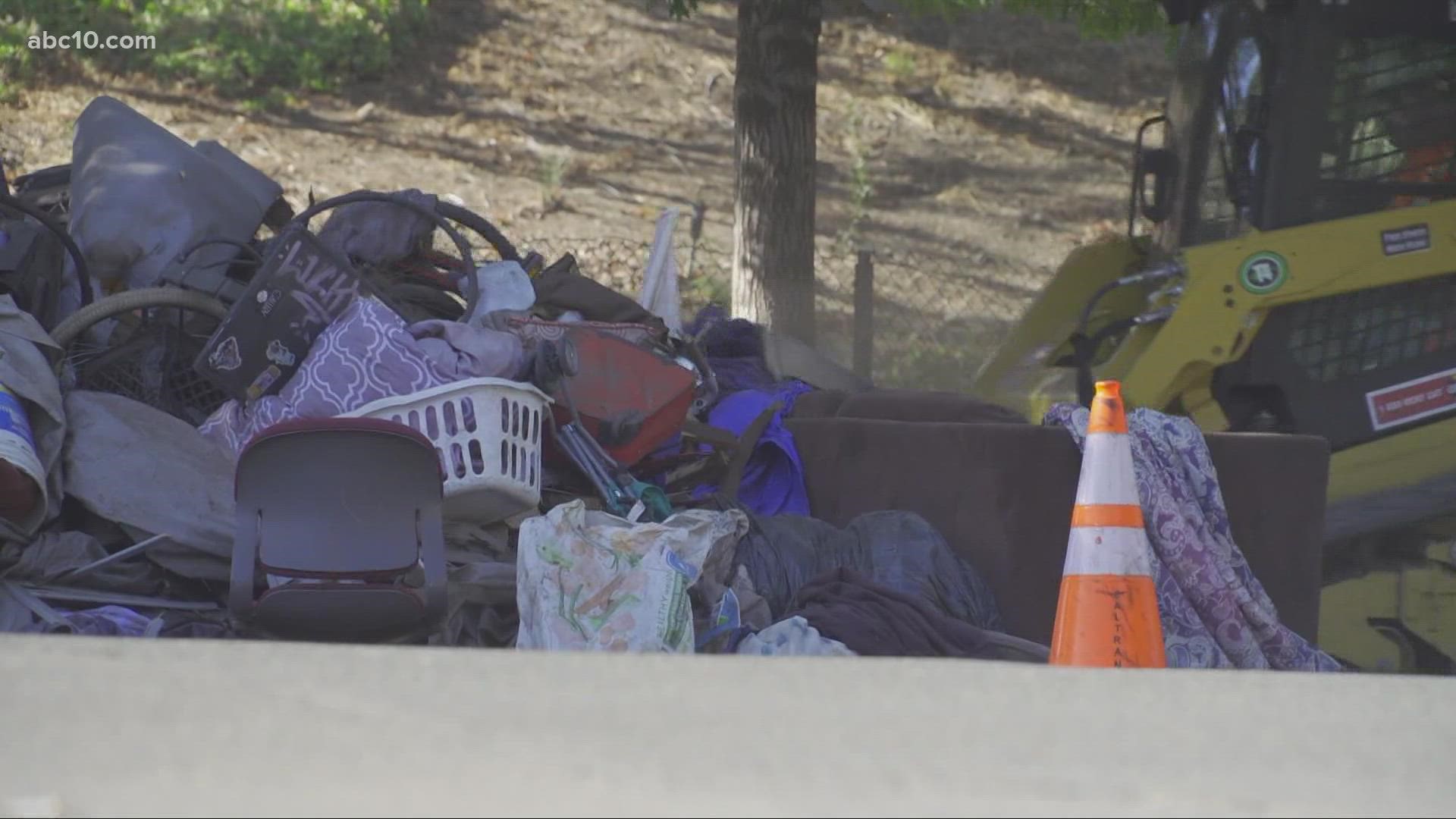SACRAMENTO, Calif. — A proposal from Mayor Darrell Steinberg will be going up for discussion at a Tuesday City Council meeting. His proposal could see unhoused persons in the city offered two forms of shelter with an obligation to accept or be moved from their camping site if they refuse.
In a Monday news release, the ordinance was touted as a "first-in-the-nation right to housing and obligation to accept housing if offered." Tuesday's council meeting would put the proposal up for initial discussion and referral to the Law & Legislation Committee.
The right would take effect Jan. 1, 2024 for every unhoused person who was previously housed for a least a year in the city limits. The ordinance wouldn't carry criminal or civil penalties for anyone who refuses housing, but it does allow the city to enforce a ban on camping.
“When something matters in our society, we make it a requirement,” Mayor Steinberg said. “It’s not optional for government to provide a free public education to children. It’s not optional for us to provide services to the developmentally disabled. In California, it’s not optional that we eliminate greenhouse gas emissions from our state’s supply of electricity. So why is it not mandatory for government at all levels to provide housing to the tens of thousands of people living on our streets, under bridges and along riverbanks? We haven’t treated housing as an essential life need. We have to stop treating housing as an economic commodity.”
According to the city, there are about 11,000 people experiencing homeless in the city and county. "Spillover effects" of their encampments are also felt by business owners and community members.
Recently, the city adopted the Comprehensive Siting Plan to Address Homelessness that set 20 priority sites around the city for more than 5,000 safe spaces, beds and roofs.
According to mayor's news release, the 2019 Martin v. City of Boise case, the COVID-19 pandemic, and instructions from county health to not disrupt camps due to COVID-19 concerns have been contributing factors to a worsening homelessness crisis.
“It is imperative that we bring people indoors and into safer spaces to get them the help they need,” Mayor Steinberg said. “You can’t help someone when they’re living under a bridge.”
The ordinance would require the city to meet the goals of the siting plan by Jan. 1, 2023. If city meets the "sufficient housing" requirements, they can set up no-camping zones of up to 500 feet around homeless shelters, City-approved camping sites, tiny home villages and other forms of emergency or transitional housing to prevent impacts on surrounding neighborhoods.
There would also be a full public hearing in October 2022 to assess the city's progress toward meeting housing goals. If they're meeting that goal, council can consider a vote to continue the effective date of the ordinance beyond Jan. 1, 2023.
WATCH ALSO:



















